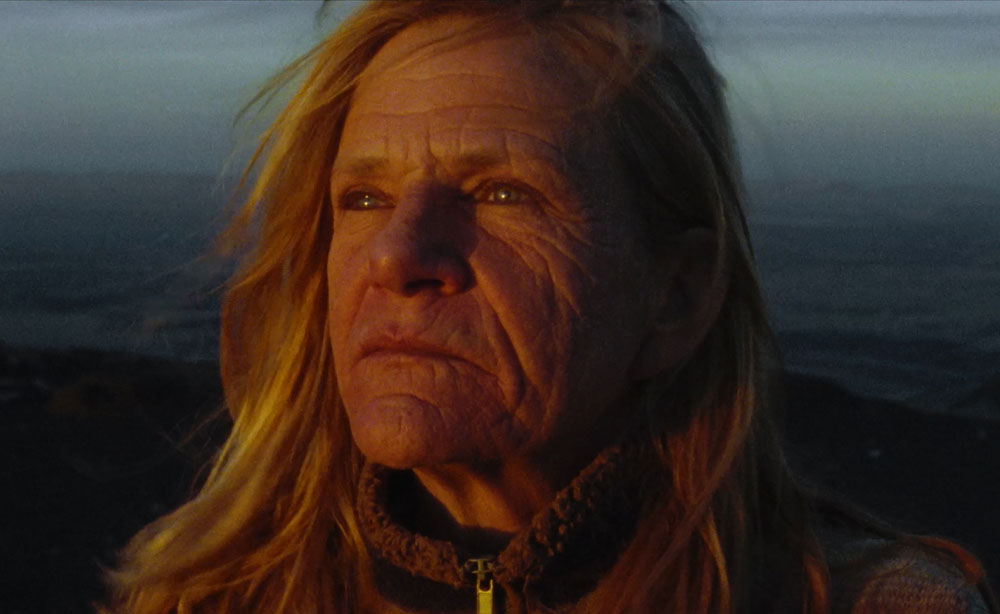“I’ve been trying to do this for seven years,” Faye (Dale Dickey) says, plunging a knife into a carton of ice cream to share with Lito (Wes Studi), who dutifully holds up a sugar cone as she tries to scoop it out for him in “A Love Song.” It shouldn’t be this difficult for one, but you can picture the catastrophe of having to balance the cone while attempting to get the slippery ice cream all in a single motion, never mind the choice of a knife over a spoon, which actually makes far more sense as multipurpose instrument where she’s living, a camper by a lake with little else but dry land and mountains for as far as the eye can see. Writer/director Max Walker-Silverman doesn’t have to put the strain of this overlong isolation into words, instead relying on the radiant pair of world-weary actors to simply give each other a knowing look that they’re there for one another as minor indignities can pile up quickly for those without a partner.
Although Faye has longed for a steady pair of hands in the wake of her husband’s death, “A Love Song” is more immediate in its warm embrace, boasting an instant charm in seeing its heroine go about her daily routine of collecting lobsters from the trap she’s set out on the water for her supper and consulting a field guide for bird watching to pass the time. She may have the stomach for such repetition, but not necessarily the heart, which yearns for some kind of connection and it’s a mixed blessing that she’s reconnected with Lito, who has also lost his spouse and has promised his high school crush that he’d find her at their old stomping grounds, not far from where her father was “one of the last Basque shepherds on the mountain.” She doesn’t move from camp site #7, even when politely asked by a family of cowboys who’d like to relocate their deceased dad who was buried beneath her truck, but hope is mixed with painful uncertainty and as she confides with some fellow travelers, she doesn’t even know if she’ll recognize Lito now except being distinguished by his “small, silver car and a big, black dog.”
Sure enough, Lito shows up, but Walker-Silverman, in a feature debut that feels as if he has ten others under his belt, uses his arrival to show how a place that he and Faye know intimately suddenly becomes utterly unfamiliar with the unfortunate set of circumstances that life has dealt them. That the pair can share the experiences they had as youngsters catching crawdads and as recent widowers is as apt to make them feel distant as close to one another after the time that’s passed and Dickey and Studi are able to show their impressive range, moving effortlessly from being completely comfortable in each other’s company to deeply vulnerable and withdrawn. Walker-Silverman is equally dextrous with tone, maintaining emotional authenticity at every turn but thankfully not above indulging in a few choice cinematic flourishes, speaking to the spirit inside Faye she can’t articulate herself with country soul music and throwing in a little Wes Anderson-esque whimsy with the color and composition choices around the quiet cowboys who employ their youngest as an emissary to negotiate their late father’s grave.
Death may feel as if it’s all around Faye, but as an appreciation for the life she’s had with all its ups and downs sets in, “A Love Song” becomes tremendously moving in observing someone who dreads waking up without someone by her side to finally appreciating the sun rise again. It’s a special shade of golden throughout Walker-Silverman’s luminous drama, but somehow it shimmers even more mightily when Faye can see it too.
“A Love Song” will screen at the Sundance Film Festival virtually for a 24-hour window, beginning on January 22nd at 7 am PST.




